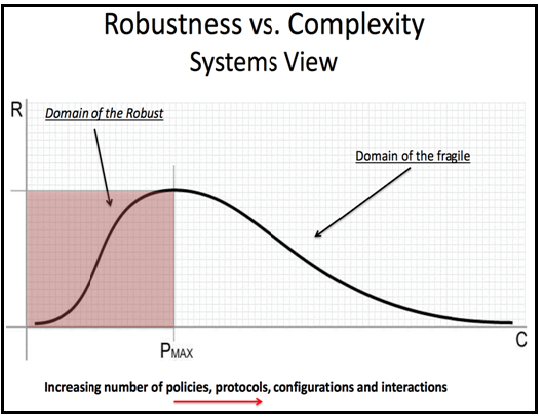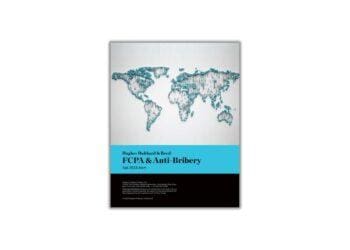Simplicity may conjure up thoughts of inner peace and contemplative musings about self-actualization, but that is not the kind of simplicity I am referring to. The concept of simplicity that I think is really interesting is the challenge of making the complex simple. I am referring to the kind of simplicity that Steve Jobs imagined when he changed how we use technology.
A Lesson From Apple
Jobs redesigned how our brains interact with technology without our realizing we were participating in a brain hack! The ecosystem Apple created with the Mac and mobile devices via the Apple Store is a stroke of genius and an answer to an interesting problem: how to make technology so simple everyone on the planet can use it right out of the box.
“The reason that Apple is able to create products like the iPad is because we’ve always tried to be at the intersection of technology and the liberal arts. To be able to get the best of both. To make extremely advanced products from a technology point of view, but also have them be intuitive, easy to use and fun to use, so that they really fit the users. The users don’t have to come to them, they come to the user. And it’s the combination of these two things that I think has let us make the kind of creative products like the iPad,” quote from Steve Jobs 2010’s introduction of the iPad.
Supposedly, the idea of a smartphone had been discussed long before Apple created the first iPhone, but no one was able to put all the pieces together in the way Jobs did. The lesson from Apple’s success should not be that simplicity is too hard to conceive; instead, we must reframe simplicity as the end goal.
By thinking of simplicity as the end goal, Jobs was able to see how multiple devices, such as, the Walkman (remember those?), cameras and phones could be integrated seamlessly into one device. Jobs showed how a focus on solving the problems that led to the cause of poor customer experience helps create higher profits, customer loyalty and shareholder value — not the other way around. More important than the technology, Jobs chose not to control how the devices were used, which harnessed yet another ecosystem of developers and innovators who shared in Apple’s ascent to the most profitable company on the planet. In other words, simplification led to organic iterations of new services, spawning demand globally for all things Apple.
This raises very interesting questions about how we deal with risks or solve complex problems that appear to be intractable. If complexity is a product of our own design, what can we learn from Apple’s lessons in simplicity? You might be surprised that simplicity is a topic being studied and tested in real-world scenarios.
About five years ago, a new website called the Simplicity Index was created by Siegel+Gale, a global brand strategy, design and experience firm, to understand the role simplicity plays in brand awareness and loyalty. The Simplicity Index explains how customers perceive the simplicity of a company’s products and services: easy to understand, transparent and honest, making customers feel valued, innovative and fresh and useful to customers. The simplicity attributes of branding lead to measurable benefits in higher profitability, customer loyalty and premium pricing because of the perceived value.
Simplicity can be quantified and measured in real returns to organizations!
The power of simplicity is much bigger than a product strategy! Consider how risk management could be transformed if internal controls and compliance were redesigned to make it simple for employees to get their work done or follow the rules. Simplicity requires that we ask counter-intuitive questions, such as why must we continue to operate the way we do or what barriers to simplicity exist for customers and employees. Is it time to reconsider how the attributes from the Simplicity Index serve as the end game, not a mission statement with no real strategy of execution?
While you ponder those questions, we should also ask why complexity is the norm, rather than simplicity. There are no simple answers, but there are examples from network engineering of how overly complex network security design leads to vulnerabilities in cybersecurity.
The Concept of Robust, Yet Fragile
Engineers of computer networks are well versed in how complexity builds as well-meaning security professionals add controls and policies in response to threats and weaknesses without considering the impact to network fragility over time.
John Doyle, the John G. Braun Professor of Control & Dynamical Systems, Electrical Engineering and BioEngineering at the California Institute of Technology, introduced the concept of the “Robust Yet Fragile” (RYF) paradigm to explain the five components of network design used to build a robust system.
Each design component is built on the concept of adding robustness to networks to handle today’s evolving business needs. “Reliability is robustness to component failures. Efficiency is robustness to resource scarcity. Scalability is robustness to changes in the size and complexity of the system as a whole. Modularity is robustness to structure component rearrangements. Evolvability is robustness of lineages to changes on longtime scales.
The graph in the above image describes the optimal point of robust network design. “Like all systems of equilibrium, the point at which robust network design leads to unnecessary complexity is the paradox faced by security professionals and systems architects. Systems, such as the Internet, are robust for a single point of failure, yet fragile to a targeted attack. As networks bolt on more stuff to build scale, the weight of all that stuff becomes more risky,” according to Doyle.
Doyle’s warnings about Internet security also apply to enterprise risk management. Does anyone really believe that every employee understands how to operationalize all of the myriad policies and procedures put into effect each year? If so, you may be operating in the domain of the fragile, unaware of the vulnerabilities lurking around the corner.
How does an organization reframe simplicity?
The answer to that question is different by industry and organizational culture. A better way to answer the question is to pose new questions for you to consider in your organization. For example, has the cost of critical operational functions increased at a higher rate than the benefits? How difficult is it for management to get timely answers about customer profitability, enterprise risk or financial performance? Are you losing customers because you are difficult to do business with? Are your employees empowered to solve risks on their own or given the tools to improve the customer experience? As you can see, the possibilities are endless; however, if you are not aware of the answers to these questions, you are operating in the domain of the fragile.
Board governance is one place where the example of simplicity can be modeled from the top down. Directors have an opportunity to reframe success and reduce risk with a focus on simplicity. Simplicity is not just a focus on less, but a renewed focus on better. Simplicity is not about doing more with less; it’s about doing less to achieve more!
As you consider new strategies for 2016 and beyond, how you reframe simplicity may be the difference in success or failure for years to come.



 James Bone’s career has spanned 29 years of management, financial services and regulatory compliance risk experience with Frito-Lay, Inc., Abbot Labs, Merrill Lynch, and Fidelity Investments. James founded Global Compliance Associates, LLC and TheGRCBlueBook in 2009 to consult with global professional services firms, private equity investors, and risk and compliance professionals seeking insights in governance, risk and compliance (“GRC”) leading practices and best in class vendors.
James Bone’s career has spanned 29 years of management, financial services and regulatory compliance risk experience with Frito-Lay, Inc., Abbot Labs, Merrill Lynch, and Fidelity Investments. James founded Global Compliance Associates, LLC and TheGRCBlueBook in 2009 to consult with global professional services firms, private equity investors, and risk and compliance professionals seeking insights in governance, risk and compliance (“GRC”) leading practices and best in class vendors.






